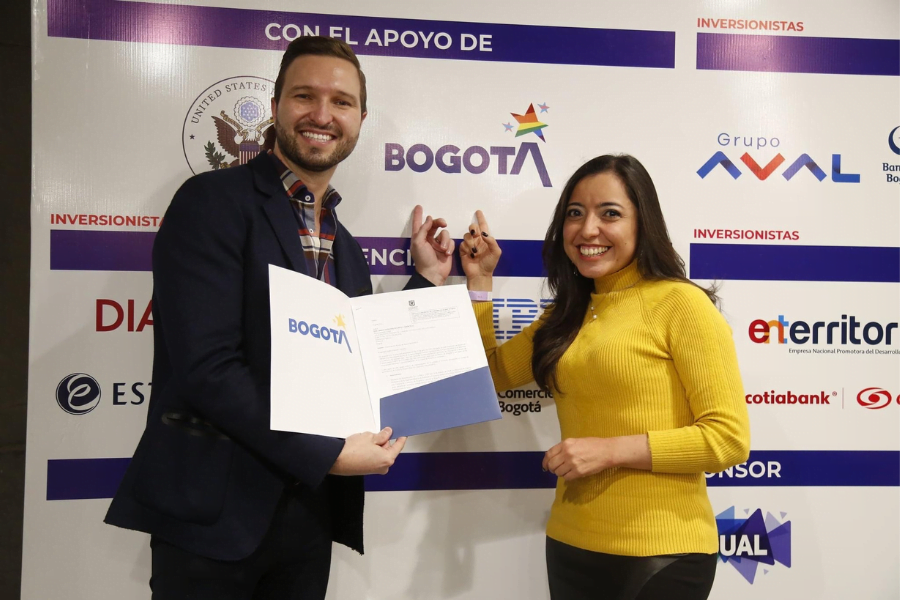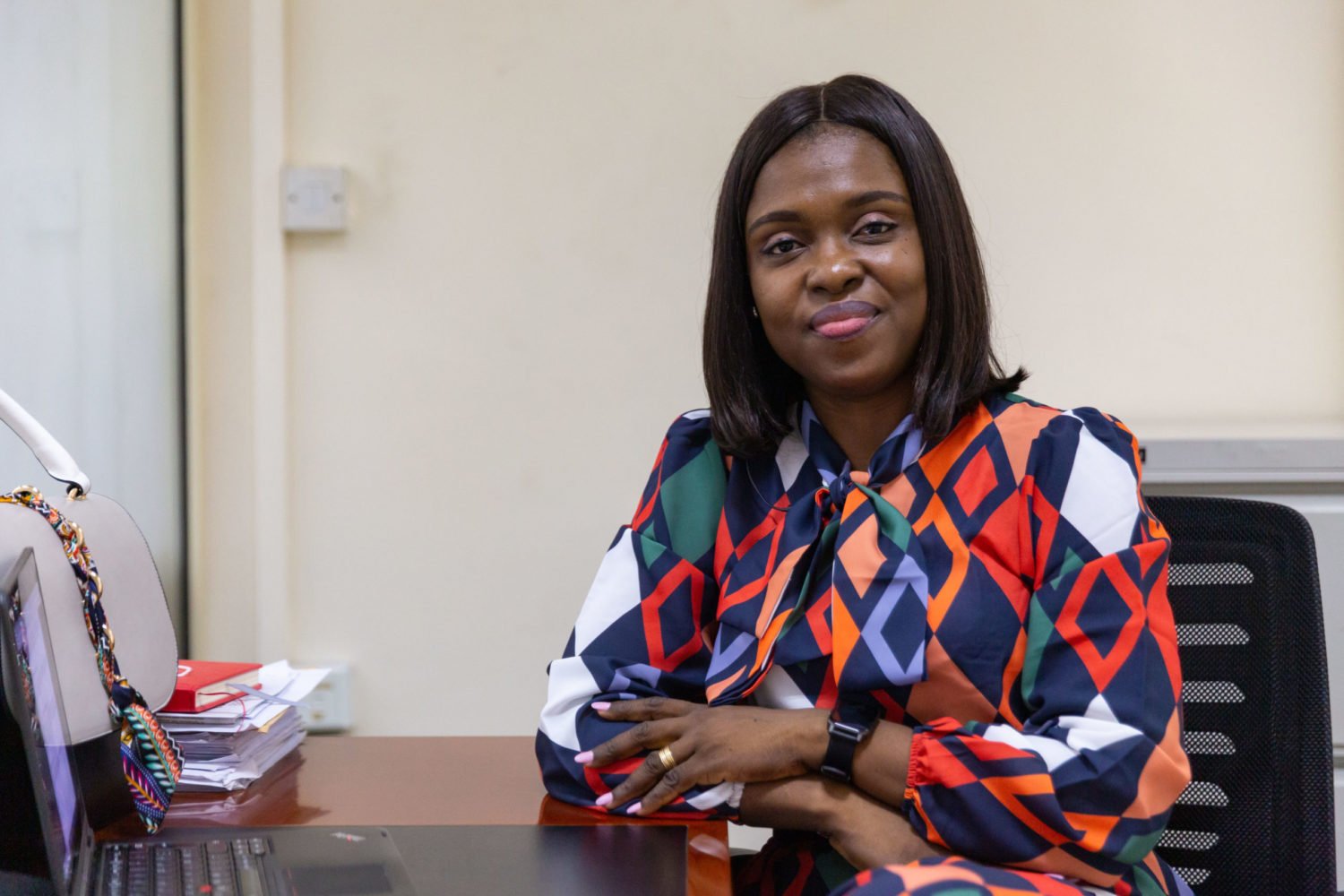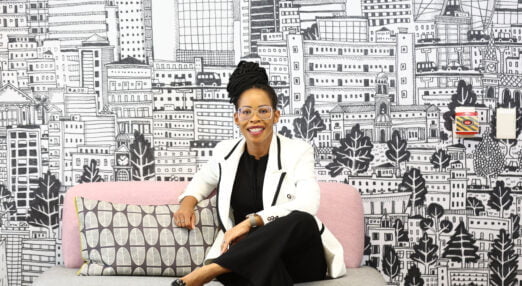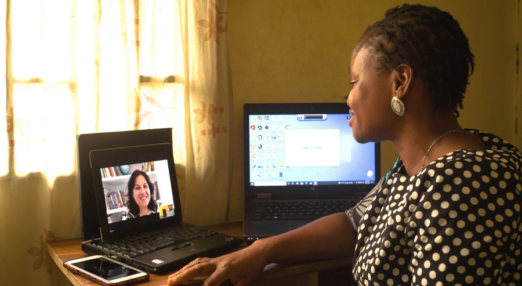Partner spotlight: the Colombian LGBT Chamber of Commerce
For 10 years, our partner the Colombian LGBT Chamber of Commerce has been transforming lives. Here's how we collaborate to support incredible women entrepreneurs across Colombia.

Our Mentoring Women in Business programme provides a transformative experience for women entrepreneurs in low and middle income countries and their businesses. To reach these women as mentees, we work in partnership with a global network of over 50 organisations across the world.
These mentee referral partners are vital to the success of our Mentoring programme, but they’re also incredible organisations undertaking impactful work in their own right.
Our Programme Manager Angela Da Silva chatted with Juan Sebastián Ochoa Sánchez, Equity and Inclusion Diversity Ecosystem Manager at the Colombian LGBT Chamber of Commerce, one of our partners connecting women in Colombia with us as mentees…
Angela: Hi Juan Sebastián! I’m excited to speak with you as I know the Colombian LGBT Chamber of Commerce does really important work supporting the LGBT community in Colombia. I’d love for you to tell me more about what you do.
Juan Sebastián: The Colombian LGBT Chamber of Commerce (CCLGBTCO) was born 10 years ago with the aim of empowering and strengthening the workforce and economic positioning of the LGBT community in Colombia. Over time, we’ve also begun to support other marginalised groups such as women, the migrant community, racial and ethnic minorities, different generations, the disabled community, and people who have recently re-joined society after being involved in the Colombian armed conflict.
In our work, the Colombian LGBT Chamber of Commerce has managed to support the development of more than 200 of the most important companies in the country by supporting the creation of their strategies and equality, diversity and inclusion policies. At the same time, we’ve run our employability programme Talento Diverso (Diverse Talent), through which we work with organisations interested in advancing equality, diversity and inclusion to strengthen work opportunities for diverse communities.
We were attracted to work with the Foundation as a great opportunity to provide alternative support in entrepreneurial leadership for LGBT women in Colombia.
That’s such incredible and important work. There are many parallels between what our two organisations do, but what was it that first interested you in working with us?
We were attracted to work with the Foundation as a great opportunity to provide alternative support in entrepreneurial leadership for LGBT women in Colombia. This has helped us diversify our economic empowerment agenda for minority women, as in our early years we were very much dedicated to supporting cisgender gay men.
As well as the importance of economically empowering marginalised people, our partnership is also built on a shared understanding of the transformative power mentoring holds. Why do you find mentoring to be so important in a woman entrepreneur’s professional journey?
An internationally-focused mentoring journey for a woman entrepreneur in a country like Colombia has a powerful impact in three main ways.
It enhances her perspectives on her decision making processes. During conversations with her mentor she can share her experiences and testimonials, as well as getting answers to her questions with an international, globalised business mindset. This leads her to make stronger and more impactful decisions in her business.
It also challenges regional ways of doing business, bringing expertise from another region into this part of the world. This shifts not only the role women play in our economies but also business practices in general in terms of productivity, governance and accountability as well as business development. All these great inputs open the door to innovation, professionalisation and stronger, more international business practices.
Finally, it means sharing different sets of difficulties women face when running businesses, both from the gender equality perspective and also the general challenges that come from running a company. This means women entrepreneurs, as mentees, can be well prepared for common difficulties they might encounter, enabling them to be wiser and maybe even saving, time, effort, money and other resources while ensuring sustainable business growth.
One of the women we referred onto the programme as a mentee said, “The mentoring program helped me structure and organize my business as an entrepreneur. It gave me a fresh perspective from a professional in an industry outside my own that made the project have a more solid foundation.”

We pride ourselves on being an intersectional feminist organisation. Why do you think intersectionality is an important aspect of supporting women entrepreneurs?
One thing I’d say is the importance of intersectionality of diversity, which is an added value of this programme. Within the community of women who identify as LBT, we also find women who are Afro-Colombian and Venezuelan [refugees], as well as other diverse characteristics, who can and want to participate in this programme.
In Latin America, whether you’re part of the LGBT community or not, the reality is there are distinct differences between the advantages of men and women entrepreneurs.
And how might the experience of a woman entrepreneur be different if she is part of the LGBT community? What forms of allyship would best support her?
In Latin America, whether you’re part of the LGBT community or not, the reality is there are distinct differences between the advantages of men and women entrepreneurs. However, effectively, a woman who owns her sexual orientation or diverse gender identity totally transforms her reality, putting herself in an even more vulnerable situation in the power struggle between men and women. By joining and participating in organisations which work towards equity and inclusion we get a much more holistic view to bridge the gaps and break the biases which are necessary to transform the realities of all these diverse women.
Thank you very much, Juan Sebastián! We are hugely looking forward to welcoming your next group of mentees into our Mentoring Women in Business programme this November.
Help create women entrepreneurs' business success stories
Whether developing personally and professionally as a mentee, or honing your leadership skills as a mentor, mentoring holds enormous value as a step in women entrepreneurs' journeys. Contribute to our Mentoring Scholarship Fund so that more incredible women entrepreneurs can participate as mentors and mentees.
Donate now
-

Corporate mentoring partnerships
Our sector-leading Mentoring Women in Business programme brings proven, lasting benefits to mentees and mentors alike – and their companies.
Read more
-

Become a mentee referral partner
Collaborate with us to support women entrepreneurs in your networks through the power of mentoring.
Read more
-

Become a mentee
Take your business to the next level with your own dedicated professional mentor.
Read more

